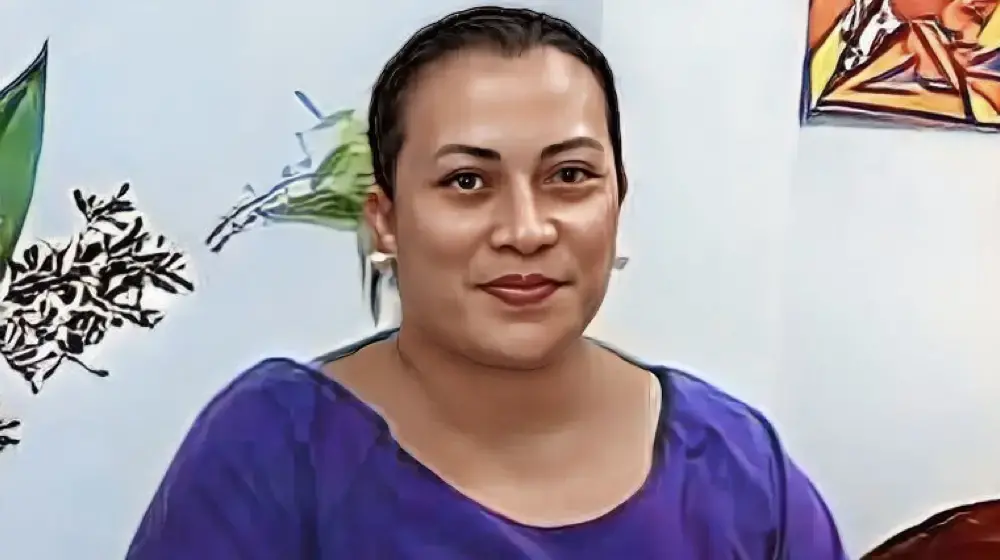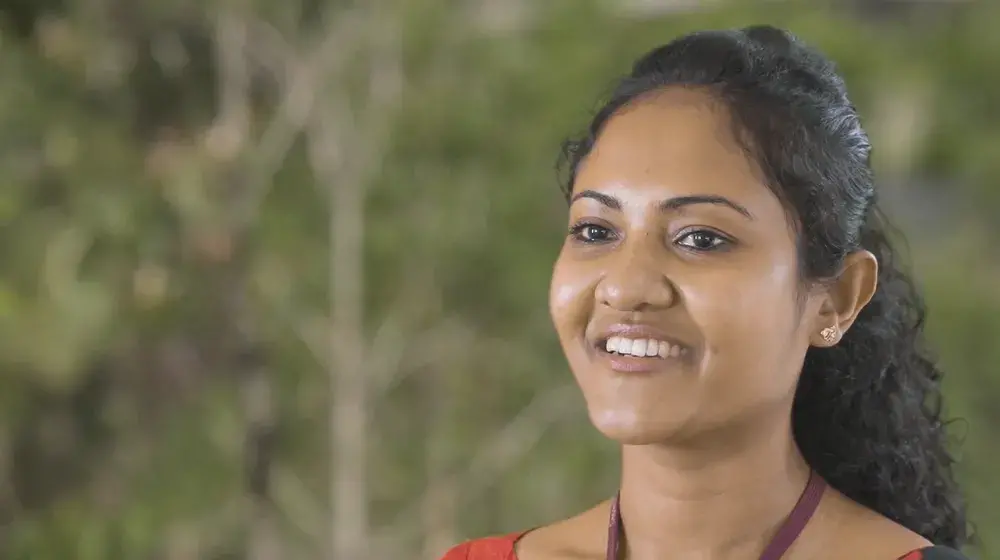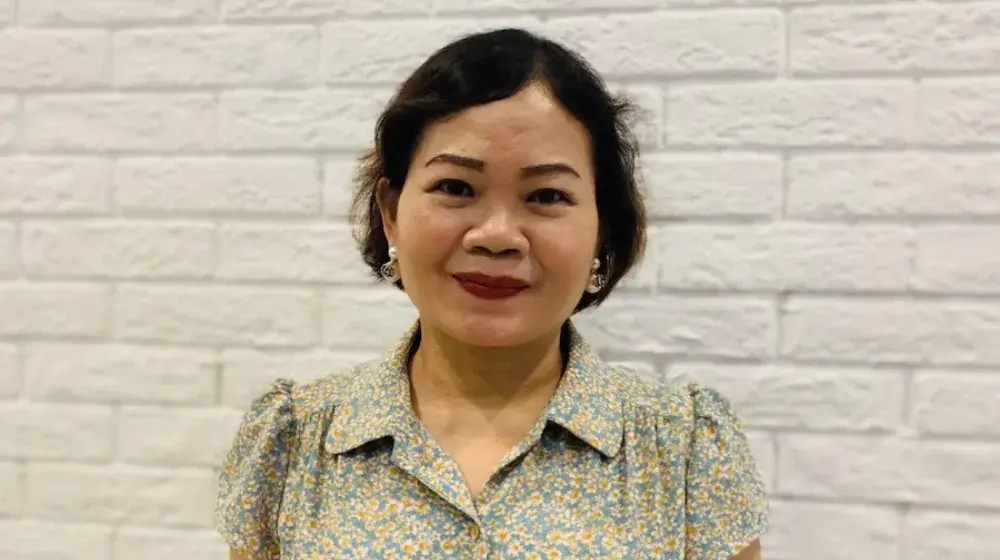Profile: Malia Tuitupou, Tonga
“Women in a violent situation need a place to go”
On 15 January 2022, an underwater volcano erupted off the coast of Tonga and caused a tsunami and ash fall. Malia works at the Women and Children Crisis Centre on the island most impacted by the disaster. She and her family were part of the nearly 3,000 people displaced, but she immediately joined the response to help women through the aftermath.
Malia was at home with her family when volcano Hunga Tonga Hunga Ha'apai erupted. “We were just doing our cooking when it started,” she recalls. “The kids ran after me and my husband hugged us. ‘What is going on? What is going on?’ they cried.”
Malia was trying to talk to her four children about the risk of a tsunami when the ongoing eruption thundered even louder. They urgently evacuated and ended up that night in a shelter. “We had no lights, no radio, no phone,” she says. “Everything was off.”
In the days immediately after the disaster, women were trying to call the helpline for gender-based violence support, the phones were down but the services continued “Women in a violent situation need a place to go,” she says. “Women and kids need a safe house and we are there for them. Right after the disaster, our office was open for anyone to come.”
"Right after the disaster, our office was open for anyone to come.”
Part of Malia’s work after the disaster was checking in with vulnerable women in their network to see if they needed support. “Maybe their husband left them or he was overseas,” she says. “We are trying to make sure they are in a safe place and all have water and other essentials.”
Malia has been working at the shelter for 11 years. It is an essential service for women and children experiencing domestic violence. In Tonga, assets like houses and the land are under the husband's name. “When it comes to domestic violence and family violence, some women have lots of conflict and fighting but it is the husband who owns everything.” This makes it challenging for women to leave their husbands.
Her shelter is providing counselling and empowering the women to look after their family. She was part of the team that delivered women and girls’ friendly spaces as part of the response. This is a place where women and girls can go to feel safe, access information and support, participate in activities, build their networks and strengthen relationships with peers.
As part of the response, UNFPA helped set up seven women and girls’ friendly spaces and reached over 2,500 people.
The project set up integrated spaces offering a range of services, from information sharing and access to social networks and recreational activities, to essential clinical care and support for gender-based violence survivors and sexual and reproductive health services.
“The nurses are talking to them about pregnancy, health and how important it is to look after themselves,” she says.
Malia was part of a team delivering integrated sessions on various topics, with gender-based violence information and awareness among the most common, followed by safe motherhood, menstrual health, reproductive health and COVID-19 information. UNFPA and DFAT provided Dignity Kits at the sessions, which encouraged women to come through the door. ”It is important to have kits and to make sure we recognise them. They feel they are special. It is an opening for them to talk and share and have fun.”
“Women appreciated the service. We talk about domestic violence awareness and if there is anything happening, the shelter is a place for them to come.”
Malia notices it is hard for women and girls to talk about violence in front of people. “We can see some do not come out and say it directly. They just whisper ‘I know your number, I will call it later.’”
“Women appreciated the service. We talk about domestic violence awareness and if there is anything happening, the shelter is a place for them to come.”
It is also difficult for women to get out from the cycles of violence; their time at the shelter is critical for charting a new path. “We tell women: ‘You can have money in your own hands, not depending on family from overseas or depending on your husband.’”
Malia and her colleagues are trying to empower women and help them come to see a life that is not dependent on men or other people. “They can make their ideas into something,” she says. "They can make handicrafts in our shelter and sell them, as well as sewing, weaving and making Tavola for other women."
The key to the success of her project is the long-term approach to working in the community.These relationships helped Malia connect with women to get them support at the moment they needed it most. “If a disaster happens, women are the ones to make sure everything is okay for the family. It is a relief for them to come out from their home.IIt is hard for them to see how important their lives are. They focus on the kids and make sure everything is done, but they do not have any time to look after themselves to see how they are doing.”
Many women just hide the emotions inside them, Malia observes, so it is helpful for women to talk to others and just share. “They think they are not supposed to talk about things like stress and all the things to do at home,” she says. “When we come out and talk to them, it does not matter what they feel; it is safe for them.”
Learn more




